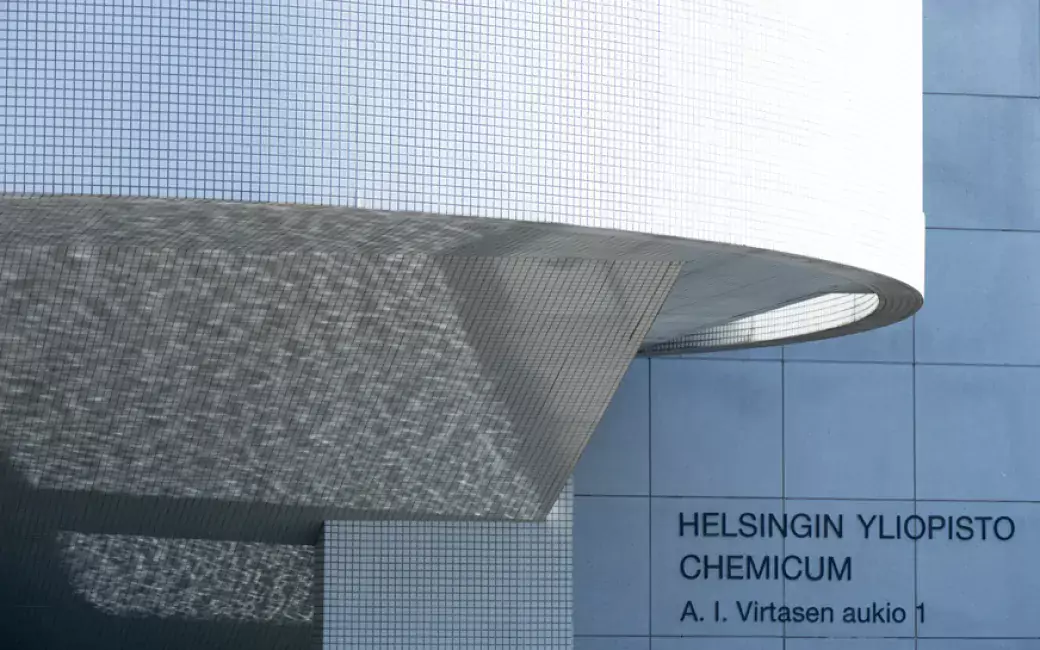An updated version of the Blue Book, or the Recommended Operating Procedures for Analysis in the Verification of Chemical Disarmament, will be published on 14 November, coinciding with the 50th anniversary of the Finnish Institute for Verification of the Chemical Weapons Convention (VERIFIN).

All over the globe, dog-eared copies of a blue manual can be found in most laboratories specialising in the identification of chemical warfare agents. The Blue Book, officially titled the Recommended Operating Procedures for Analysis in the Verification of Chemical Disarmament, is full of chemical formulas that seem like gibberish to the uninitiated. But for a trained chemist the book is a vital tool.
"Compared with the previous version from 2017, the updated edition contains information on, for example, new warfare agents and their analysis techniques. In addition, the section on criminal investigation has been included," explains Professor Paula Vanninen, who was in charge of compiling the book. The updating process involved 30 laboratories and over 100 authors and reviewers.
Over the years, a project launched in 1973 and headed by Jorma K. Miettinen developed into VERIFIN, operating under the auspices of the University of Helsinki's Department of Chemistry. It is not only the national authority referred to in the Chemical Weapons Convention, but also a research and training organisation. VERIFIN offers training to chemists particularly from developing countries, giving them the chance to explore the analysis of chemical warfare agents and develop their expertise to support national laboratories across the world. The international Organisation for the Prohibition of Chemical Weapons (OPCW) received the Nobel Peace Prize in 2013 for its efforts to eliminate chemical weapons globally. VERIFIN has a copy of the prize medal on Kumpula Campus.
In 1996 VERIFIN was awarded the status of designated laboratory, which means it receives and analyses authentic samples from countries engaged in war. VERIFIN is one of few laboratories the OPCW has authorised to analyse both environmental and biomedical samples from victims.
In early November, the VERIFIN facilities at the University of Helsinki Kumpula Campus are even busier than usual. The laboratory has received six unknown samples from the OPCW and been tasked with identifying and reporting on the relevant chemicals. It's all hands-on deck, and all other work must come to a halt. However, everyone knows that this time it's just a training drill. Staff have two weeks to pass this regularly repeated proficiency test.
Authentic samples from crisis areas are always processed confidentially. The OPCW publishes results but does not reveal analysis sites. The poisoning of Russian opposition politicians and the war in Syria propelled the OPCW's work into the global spotlight.
Laboratories can also lose their designated status. It is thus important to uphold the current level of expertise. The OPCW uses the yearly tests to ensure that the professional skills and expertise of laboratory staff stay up to par.
Paula Vanninen, VERIFIN's research director since 1996, describes herself as a passionate scientist who had the opportunity to conduct groundbreaking research and develop methods in companies including Orion, from where she was snatched up by VERIFIN.
At VERIFIN, she introduced the new technique of liquid chromatography-tandem mass spectrometry (LC-MS/MS). It is, in fact, a combination of two analysis techniques used to separate and analyse compounds in a sample. The sensitivity of LC-MS/MS makes it ideal for separating complex mixtures and identifying unknown chemical compounds.
Originally, VERIFIN received all of its funding from the Ministry for Foreign Affairs of Finland, but now operations are developed with external research funding.
Creativity and the ability to predict and envision the future have been essential skills, and Vanninen has had what it takes.
The recently completed GIDProvis project is just one example of this. It was the first project in Finland to be funded by the EU's Horizon 2020 Future and Emerging Technologies programme. The project developed a technique for the needs of fire and rescue services to quickly identify toxic substances in the air. Although the three-year EU funding has ended, development and product creation require further funding. [https://www.helsinki.fi/en/verifin/tasks/research]
Vanninen often appears in the media commenting on issues of chemical weapons. She is also an honorary doctor from both the University of Oulu and the National Defence University.
"Forensic science is an emerging research area, where VERIFIN's expertise will come in handy," she says.
Although Vanninen has no plans to abandon research entirely, she will be able to concentrate on her personal interests, such as her new hobby of growing greenhouse cucumbers. The new director of VERIFIN, appointed for a five-year term beginning on 1 January 2024, is Research Director Hanna Hakulinen, PhD, who will continue the institute's work to ensure a world free of chemical weapons.






